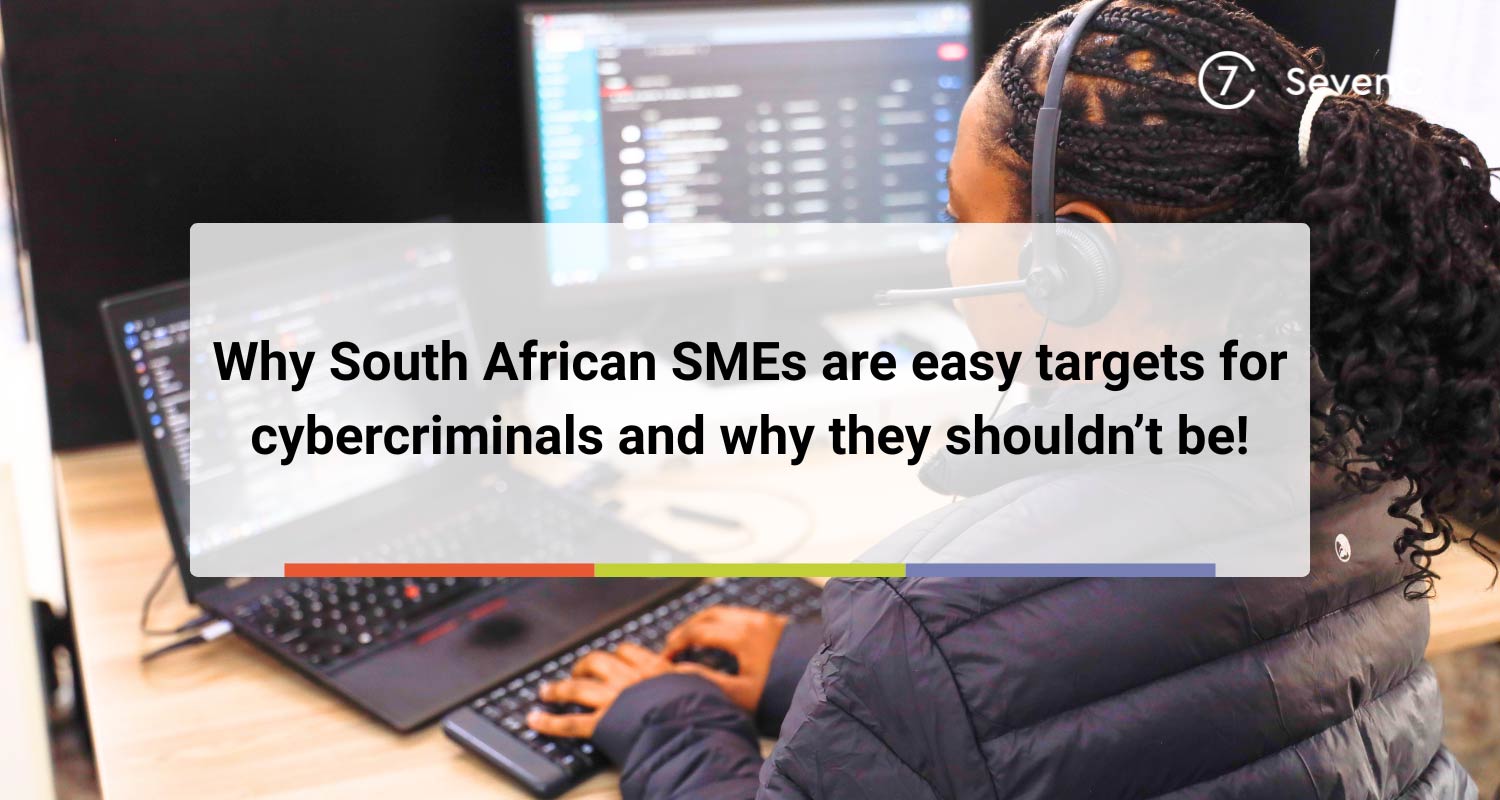South Africa’s entrepreneurs and SMEs sit at the heart of our economy, contributing over 30% to GDP and employing between 50% and 60% of the country’s workforce.
They’re the corner bakeries, the growing logistics firms, the niche manufacturers, the consultancies with 10 or 50 people quietly powering supply chains that feed larger industries.
But for all their economic weight, most South African small businesses still underestimate one reality: if your entire business runs online, your risks live online, too; and you’re sharing the same digital real estate as the biggest corporate companies.
In my years helping SMEs as an outsourced IT partner, I see the same pattern repeat. Business owners trust they’re too small to matter but the truth is, criminals don’t think that way. Where large enterprises have layers of physical security, boom gates, sign-in protocols and biometric access, smaller businesses have the digital equivalent of an open door. Hackers see that gap as an opportunity.
The next layer that’s rapidly changing this equation is artificial intelligence, but not just the AI that defends us. The same AI that protects big businesses is now in the hands of cybercriminals, who can automate large-scale attacks that find weak passwords, mimic legitimate voices and craft socially engineered e-mails that your staff can barely spot. AI has shifted the threat landscape from opportunistic break-ins to targeted, continuous probing – and SMEs with fragmented IT setups are an easy first point of entry.
Not rocket science
In technical terms, the vulnerabilities are usually simple: unmonitored endpoints, uncontrolled file sharing, stale passwords reused across devices, and a lack of robust backup and recovery. Small companies are particularly exposed where staff use unmanaged devices on unsecured networks. One click on a malicious link from a coffee shop Wi-Fi can pivot to every device connected to your shared folders within seconds if you don’t have a properly configured endpoint detection and response (EDR) solution.
Yet the fix is not rocket science and it doesn’t require an enterprise-sized budget. Even the smallest firm, with 10 people, can cover the basics well: secure all user devices under a single policy, standardise cloud storage on a properly licensed Microsoft 365 tenant, implement modern backup with real recovery testing and put in place an MDR (managed detection and response) service that combines AI’s speed with a local, trusted team that steps in when the alert hits at 2am.
Most critically, SMEs need to recognise that human error is still the largest surface area for attack. AI will flag suspicious behaviour, but only trained people decide whether to click, reply or pay. This is where people-centric risk management tools like USecure add practical value. When staff know how to detect phishing, spot fake invoices and understand the consequences of sloppy password reuse, the entire environment becomes more resilient.
Unfortunately, cybercriminals benefit from the same advantage. And Theresa Payton, former White House CIO, is right to remind us: “Cybersecurity is a people problem, not just a technology problem.”
 For our economy to keep growing, South Africa’s SMEs must stop seeing robust IT as an overhead and start viewing it as a business continuity essential. Cyber incidents aren’t just a nuisance, they cost real money, real hours and real jobs. When a small logistics firm has its data locked by ransomware, or a consulting practice loses critical files because of unmanaged cloud folders, that damage hits owners, staff and the economy directly.
For our economy to keep growing, South Africa’s SMEs must stop seeing robust IT as an overhead and start viewing it as a business continuity essential. Cyber incidents aren’t just a nuisance, they cost real money, real hours and real jobs. When a small logistics firm has its data locked by ransomware, or a consulting practice loses critical files because of unmanaged cloud folders, that damage hits owners, staff and the economy directly.
At SevenC Managed IT Services, we’ve supported local SMEs for more than 20 years. If we’ve learned one thing, it’s this: your business might be small, but your exposure isn’t. Being “too small to target” is no longer a defence. The good news is, with the right outsourced IT partner – and by sticking to modern basics done properly – every SME can step up security without breaking budgets or overcomplicating operations.
If South Africa’s SME sector is the high street of our economy, then it’s time we treat every front door with the same care and protection that big companies invest in their boom gates and guards. Because when our entrepreneurs are resilient, the whole country stays open for business.
In case you missed it, visit hub.techcentral.co.za/sevenc to download the webcast replay of our latest cybersecurity for SMEs event, which has already helped dozens of South African businesses assess their gaps and make informed IT investment decisions.
Don’t miss:
Managed detection and response: a critical imperative for South African SMEs



